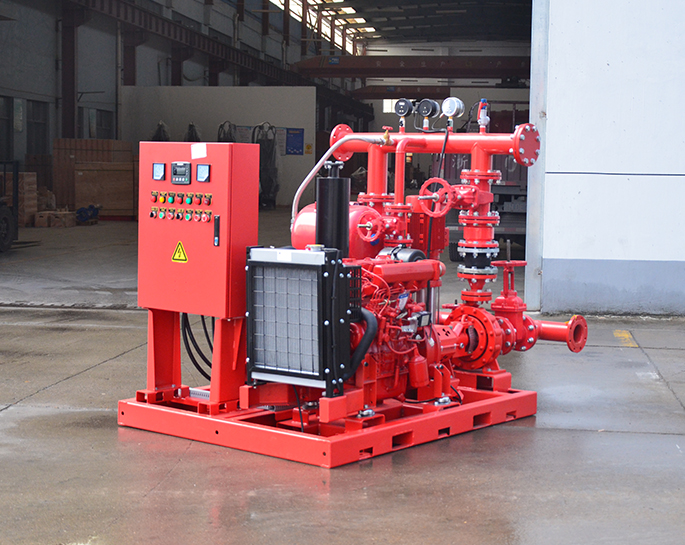How do you ensure the reliability of a diesel fire pump?
May 17, 2024
Share:
Ensuring the reliability of a diesel fire pump involves several key steps:
1. **Regular Maintenance:** Implementing a scheduled maintenance program is crucial. This includes routine checks of the pump's components such as the engine, fuel system, cooling system, and pump itself. Maintenance tasks should adhere to manufacturer recommendations and industry standards.
2. **Inspections:** Regular inspections help identify any potential issues before they escalate. Inspect components like hoses, fittings, valves, and electrical connections for signs of wear, corrosion, or damage.
3. **Testing:** Conduct periodic testing to verify the pump's performance. This includes running the pump to ensure it starts properly, achieves the required pressure, and delivers water effectively. Regular testing can uncover problems early and ensure the pump is ready for action when needed.
4. **Training:** Ensure that personnel responsible for operating and maintaining the diesel fire pump are adequately trained. They should be familiar with the pump's operation, maintenance procedures, and safety protocols.
5. **Spare Parts Inventory:** Maintain an inventory of critical spare parts to minimize downtime in case of component failure. This includes items such as filters, belts, gaskets, and sensors.
6. **Documentation:** Keep comprehensive records of maintenance activities, inspections, tests, and any repairs or replacements performed on the pump. This documentation helps track the pump's history and aids in identifying recurring issues.
7. **Environmental Considerations:** Ensure the pump's environment is suitable for its operation. Diesel pumps should be protected from extreme temperatures, moisture, dust, and other environmental factors that could affect their performance.
8. **Emergency Preparedness:** Develop contingency plans and procedures for responding to pump failures or malfunctions. This may involve backup systems, alternative water sources, or manual firefighting methods to compensate for pump downtime.
By following these steps, you can help ensure the reliability of a diesel fire pump, minimizing the risk of failure and ensuring it's ready to perform when needed in an emergency.

1. **Regular Maintenance:** Implementing a scheduled maintenance program is crucial. This includes routine checks of the pump's components such as the engine, fuel system, cooling system, and pump itself. Maintenance tasks should adhere to manufacturer recommendations and industry standards.
2. **Inspections:** Regular inspections help identify any potential issues before they escalate. Inspect components like hoses, fittings, valves, and electrical connections for signs of wear, corrosion, or damage.
3. **Testing:** Conduct periodic testing to verify the pump's performance. This includes running the pump to ensure it starts properly, achieves the required pressure, and delivers water effectively. Regular testing can uncover problems early and ensure the pump is ready for action when needed.
4. **Training:** Ensure that personnel responsible for operating and maintaining the diesel fire pump are adequately trained. They should be familiar with the pump's operation, maintenance procedures, and safety protocols.
5. **Spare Parts Inventory:** Maintain an inventory of critical spare parts to minimize downtime in case of component failure. This includes items such as filters, belts, gaskets, and sensors.
6. **Documentation:** Keep comprehensive records of maintenance activities, inspections, tests, and any repairs or replacements performed on the pump. This documentation helps track the pump's history and aids in identifying recurring issues.
7. **Environmental Considerations:** Ensure the pump's environment is suitable for its operation. Diesel pumps should be protected from extreme temperatures, moisture, dust, and other environmental factors that could affect their performance.
8. **Emergency Preparedness:** Develop contingency plans and procedures for responding to pump failures or malfunctions. This may involve backup systems, alternative water sources, or manual firefighting methods to compensate for pump downtime.
By following these steps, you can help ensure the reliability of a diesel fire pump, minimizing the risk of failure and ensuring it's ready to perform when needed in an emergency.


.png)
.png)

.png)


